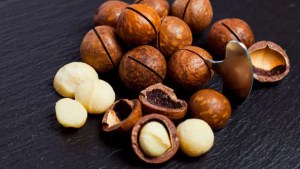President Bola Tinubu has placed a six months ban on the exportation of raw Shea nuts, as part of the administration’s policy to structure shipments of the produce abroad.
The move, as gathered, was embarked upon by the government to ensure the country achieves the desired purpose of the product.
The Senior Special Assistant to the President on Media and Communications, Office of the Vice President, Stanley Nkwocha, made this known in a statement on Tuesday in Abuja.
 The president announced this during a meeting with stakeholders in Abuja, where he was represented by the Vice President, Kashim Shettima.
The president announced this during a meeting with stakeholders in Abuja, where he was represented by the Vice President, Kashim Shettima.
He stated that the move will help to curb informal trade, boost local processing, protect and grow Nigeria’s shea industry.
The ban is subject to review on expiration and specifically aimed at boosting Nigeria’s shea value chain to generate around $300 million annually in the short term.
He ordered that the Federal Ministry of Finance and other relevant government agencies to fast-track enforcement.
Speaking further on the directive, the Vice President said the decision was not “an anti-trade policy but a pro-value addition policy designed to secure raw materials for our processing factories and enabling industries run at full capacity thereby boosting rural income and jobs for our people.”
He added that the decision “will transform Nigeria from an exporter of raw shea nut to a global supplier of refined shea butter, oil and other derivatives,” just as he said it is about industrialization, rural transformation, gender empowerment and expanding Nigeria’s global trade footprint.”
On opportunities for job creation and income generation, the Vice President said, “Nigeria produces nearly 40% of the global shea product, yet we account for only 1% of the market share of $6.5 billion.
He explained that the ban was a collective decision involving the sub-nationals and the Federal Government with clear directions for economic transformation in the overall interest of the nation.
Earlier, the Minister of Agriculture and Food Security, Senator Abubakar Kyari, who explained how the nation stands to benefit from the ban, regretted that despite being the world’s largest producer of shea nuts, contributing nearly 40 percent of global supply, Nigeria captures less than one percent of the multi-billion-dollar global shea economy.
He said, “Nigeria produces an estimated 350,000 metric tonnes of shea annually across 30 states, with the potential to reach nearly 900,000 metric tonnes. Yet nigeria share of the 6.5-billion-dollar global market is less than one percent.




